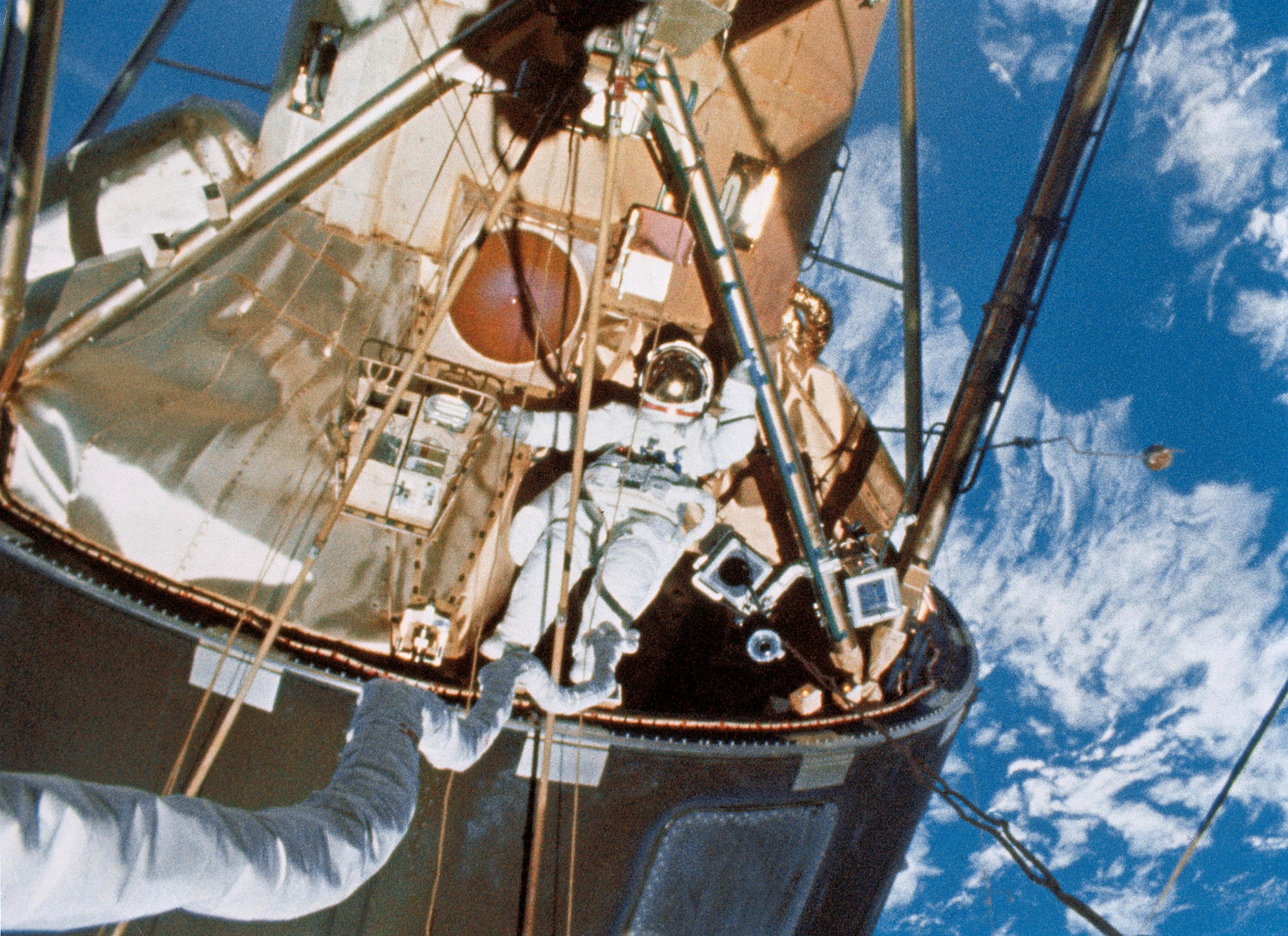
Skylab, America's first space station, had a dramatic birth and death. Damaged on its trip into space in 1973, it required an innovative repair—an expandable heat shield deployed through an airlock—just to make it habitable. And then, six years later, on this day in 1979, it had a fiery demise, falling to Earth in a blaze of glory that someone compared to "a train on fire."
The descent of the 77.5-ton space station was preluded by a mix of fear (a NASA official said that some people calling in were "really quite panicky"), comedy, partying, and gambling, as Newsweek reported in its July 16, 1979 issue:
In various parts of the country, wags painted X's on their neighbors' roofs or sported T shirts with targets on the back. Entrepreneurs sold plastic helmets and Skylab survival kits compete with bags for collecting stray parts of the spacecraft and letters suing NASA for damages. "I don't know how much we're making, but we're having fun," said Steven Danzig, 25, of Bloomington, Ind., who sold more than 20,000 such kits. In Washington, a bar called Mr. Smith's sold a concoction dubbed the Chicken Little Special.
Around the U.S., there were Skylab parties to coincide with the crash, and betting pools on precisely when or where the debris would come streaking back to earth.
NASA, Newsweek reported, estimated that the odds of someone being hit by a piece of the orbiting outpost were one in 152.
When it finally did fall to Earth, after completing nearly 35,000 orbits, some parts of the spacecraft that hadn't incinerated in the atmosphere landed in Australia. "As multicolor fireballs lit up the midnight sky over western Australia, sounds like thunder boomed in the night, [and] animals panicked.…" Newsweek reported in the next week's issue.

Then the search for what was left of the craft, which had first been lifted off Earth's surface by an enormous Saturn V rocket, began:
By morning, hundreds of scavengers were scrambling toward the tiny town of Balladonia in four-wheel-drive vehicles and light planes. A San Francisco newspaper had offered a $10,000 reward for the first piece of Skylab received, the Western Australia Department of Tourism had offered $1000, and a Hong Kong currency dealer said he would pay an ounce of gold for each ounce of Skylab.
Some pieces landed around Esperance, Australia, where you can see debris from the station at its municipal museum; it also sells "great Skylab T-shirts, stickers, and other memorabilia." It famously fined NASA $400 for littering, but it wasn't NASA who paid it in the end—it was a radio DJ in California who raised the money and mailed a check.
As for the fact that Skylab fell to Earth in the first place, Newsweek explains that was because the space agency, for the safety of the station's crew, "took a calculated gamble by not fitting the craft with rockets for a guided re-entry." In the future, things would be done differently:
Scientists hope that a reusable space shuttle expected to be ready next year can be employed to attach rocket motors to large satellites to control their re-entry--or to move them to high, safer orbits that would prevent any encore of Skylab's fiery plunge.
The first space shuttle mission flew less than two years later, in 1981.
Uncommon Knowledge
Newsweek is committed to challenging conventional wisdom and finding connections in the search for common ground.
Newsweek is committed to challenging conventional wisdom and finding connections in the search for common ground.
About the writer
Rob Verger is liaison to Newsweek’s foreign editions and also reports, writes, and edits. In addition to Newsweek and its ... Read more
To read how Newsweek uses AI as a newsroom tool, Click here.





